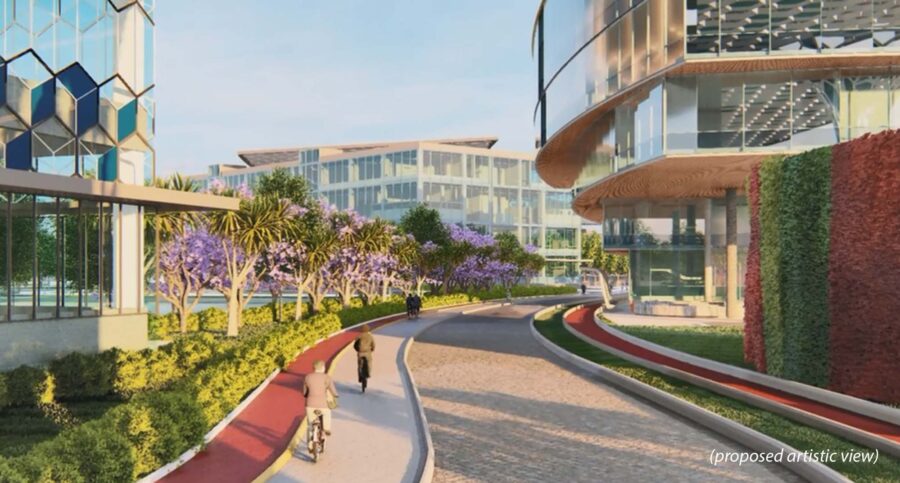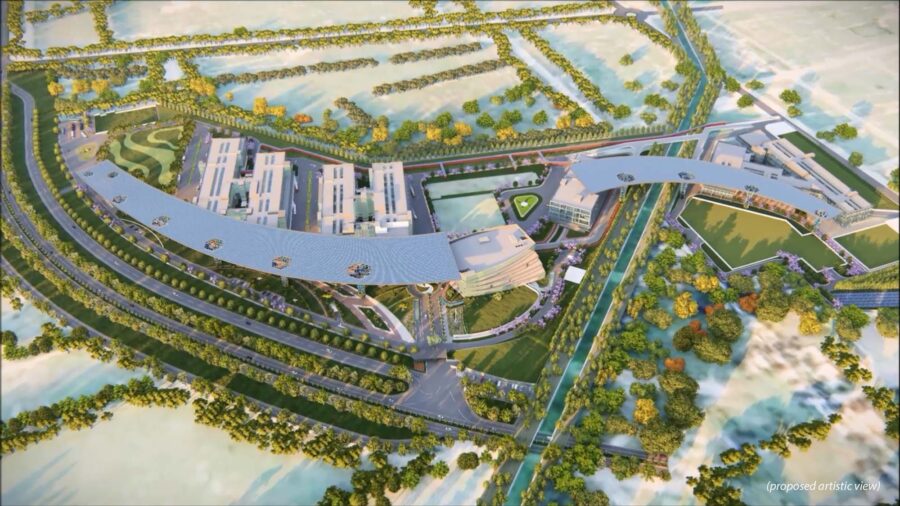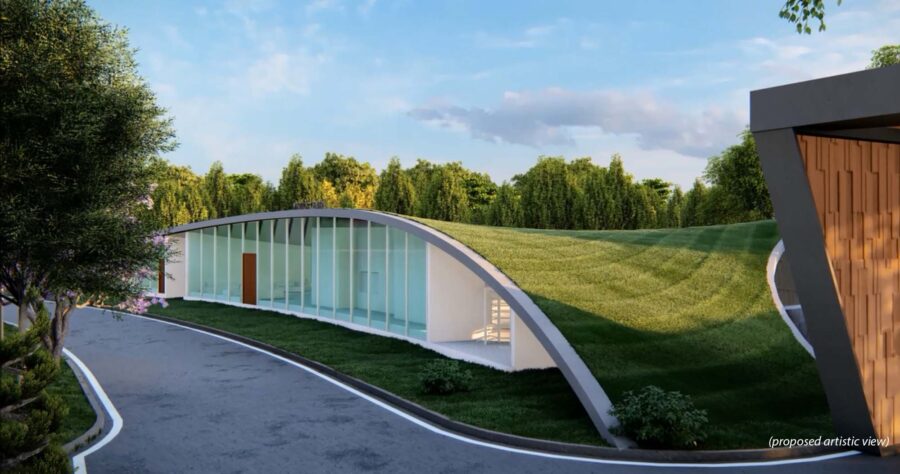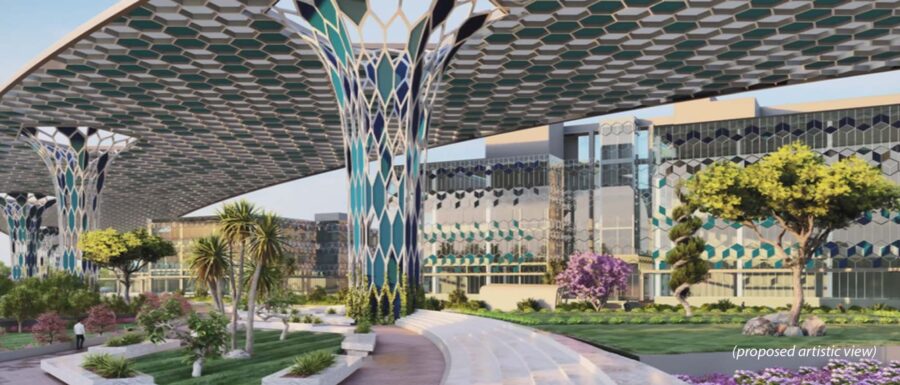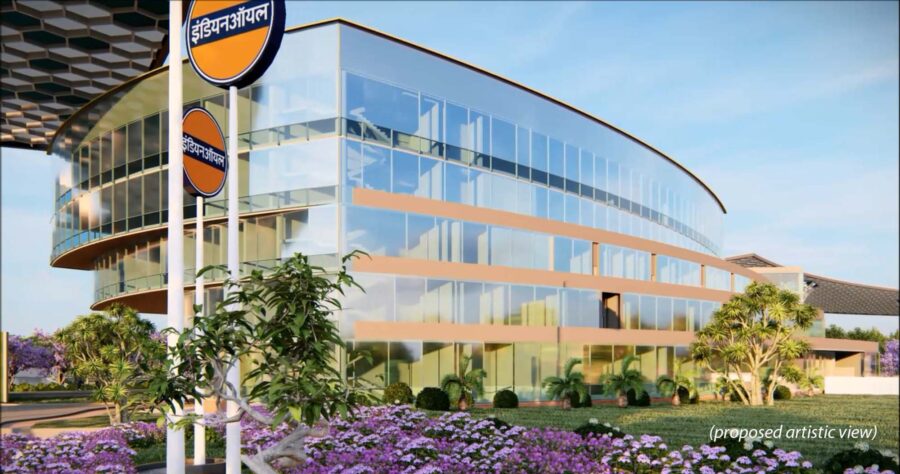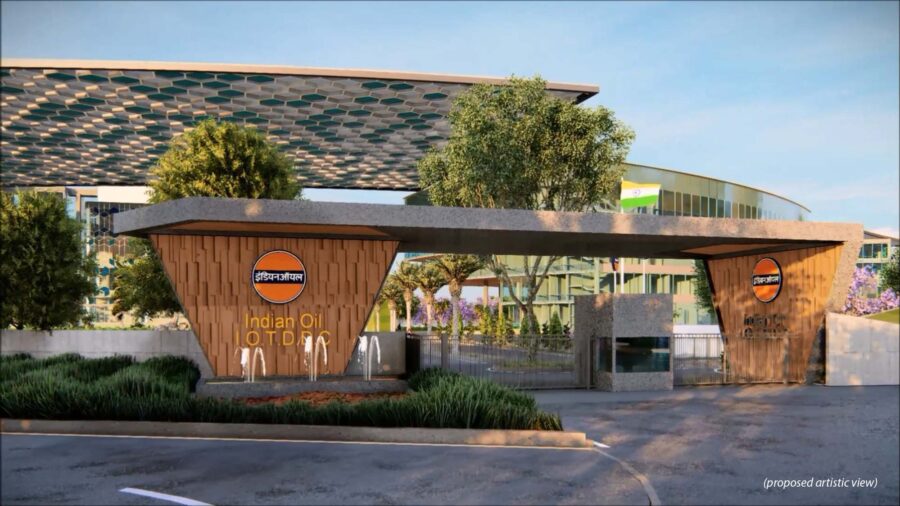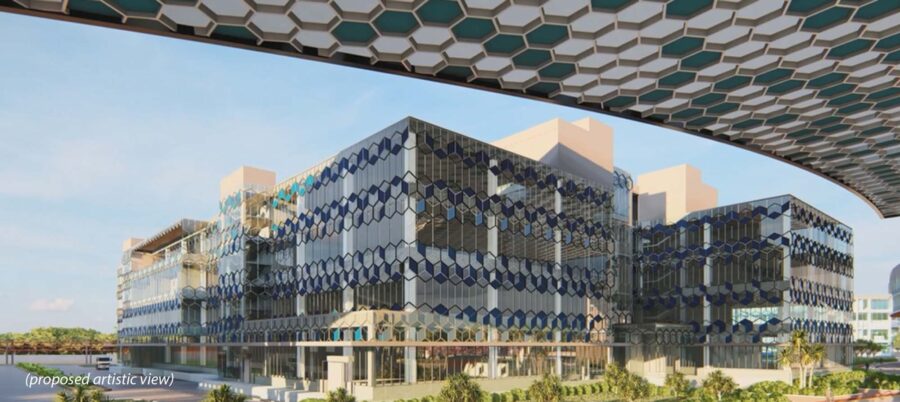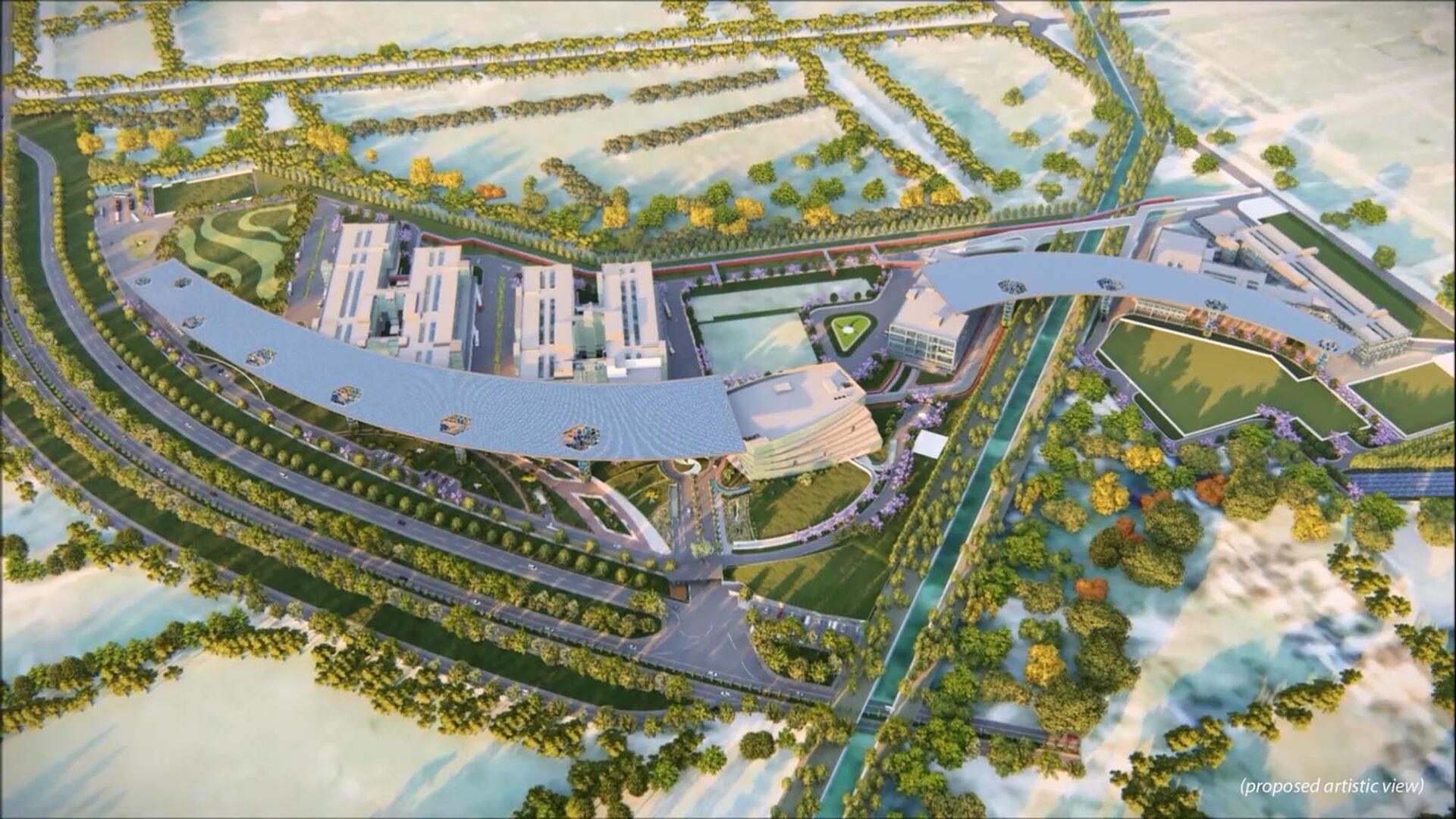
Location Faridabad, India
Client Indian Oil Corporation Limited (IOCL)
Services Project Management
Project Value $275 million
Hill is providing project consultancy support for the state-owned Indian Oil Corporation, Ltd.’s (IOCL) new Technology Development and Deployment Centre. IOCL is the largest commercial oil company in the nation and directly involved with accessing India’s own reserves, refining crude oil, distributing oil to consumers, and researching innovative petrochemical products and solutions. The company is also seeking ways to remedy India’s reliance on foreign energy sources.
The new Centre will directly support these goals. The company has a strong background in research and development (R&D), with over 1,000 patents on products involved in the hydrocarbon value chain. The new Centre is being developed on a 60-acre plot in Faridabad, near the existing campus. Employees at the new R&D Centre will focus on the development of a wide range of energy technologies and solutions involving refining technology, petrochemicals, applied metallurgy, biotechnology, pipelines, catalysts, carbon nanotechnology, batteries, and alternative energy.
The Technology Development and Deployment Centre is planned with built-up area of approximately 145,000 SM organized in 7 building blocks. These building blocks consist of four major groups. Block A, Block B, Block C, and Block D are primarily laboratories, where the actual research of the Centre will be carried out. Block E is an administrative block, Block F is for visitors, and Block G houses utilities.
A central nexus divides the campus into two major sections. At the nexus sits the Centre’s central administrative facility, which will host a large shaded area and send forth two wings of raised, curving solar panels. These wings make up the spine of the complex.
In addition to these physical divisions, the campus will be divided conceptually into four major centres of research. In addition to the i-CARE facility focused on alternative and renewable energy, the other centres will focus upon nanotechnology, synthetic biology, and corrosion research.
Apart from its core research goals, the Centre will also take developed technologies to the commercial deployment level with pilot plants, scale-up plants/process units, demonstration scale plants/process unit plants, as well as semi-commercial scale plants.
When complete, the new facilities will include offices, research laboratories, conference rooms, pilot plants, a theatre complex for lectures, multipurpose halls, and a visitor centre. Outdoors, the campus will feature surface-level and belowground parking, charging facilities for electric vehicles, a recreation zone, integration of public and private transport, solar panels, internal roads, pathways, signage, murals, water features, rain water drainage and rain water harvesting, irrigation system, landscaping, hardscaping, and green corridors, among other green features.
IOCL is also taking steps to develop and deploy alternative energy sources to meet the energy demands of the world’s second most-populous country and to reduce the country’s carbon footprint. The new campus will support IOCL’s green goals in both form and function. The campus itself is envisioned as the world’s largest and most sustainable net-zero campus, a next-generation facility that meets top quality standards of research, occupational health and safety, and sustainability. The campus aims for GRIHA-5 and LEED Platinum ratings. The Centre has an anticipated annual energy demand of 15,870 MW and will fulfil this energy need by the installation of solar PV panels on a 70,000 SM raised, curving platform that runs above the spine of the entire complex.
In parts of Indian culture, the peepal tree is an object of reverence. Many great thinkers have been said to sit, learn, and teach under the tree. The IOCL features a peepal-leaf design that provides for a functional and beautiful space, integrated to facilitate collaboration.
We and use cookies and other tracking technologies to improve your experience on our website. We may store and/or access information on a device and process personal data, such as your IP address and browsing data, for personalised advertising and content, advertising and content measurement, audience research and services development. Additionally, we may utilize precise geolocation data and identification through device scanning.
Please note that your consent will be valid across all our subdomains. You can change or withdraw your consent at any time by clicking the “Consent Preferences” button at the bottom of your screen. We respect your choices and are committed to providing you with a transparent and secure browsing experience.
| Cookie | Duration | Description |
|---|---|---|
| cookielawinfo-checbox-analytics | 11 months | This cookie is set by GDPR Cookie Consent plugin. The cookie is used to store the user consent for the cookies in the category "Analytics". |
| cookielawinfo-checbox-functional | 11 months | The cookie is set by GDPR cookie consent to record the user consent for the cookies in the category "Functional". |
| cookielawinfo-checbox-others | 11 months | This cookie is set by GDPR Cookie Consent plugin. The cookie is used to store the user consent for the cookies in the category "Other. |
| cookielawinfo-checkbox-necessary | 11 months | This cookie is set by GDPR Cookie Consent plugin. The cookies is used to store the user consent for the cookies in the category "Necessary". |
| cookielawinfo-checkbox-performance | 11 months | This cookie is set by GDPR Cookie Consent plugin. The cookie is used to store the user consent for the cookies in the category "Performance". |
| viewed_cookie_policy | 11 months | The cookie is set by the GDPR Cookie Consent plugin and is used to store whether or not user has consented to the use of cookies. It does not store any personal data. |

